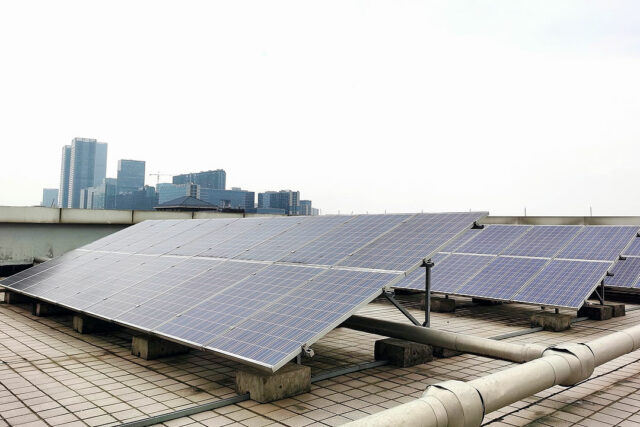The Ease of Paying Taxes (EoPT) bill, which seeks to improve tax compliance, was recently approved by the bicameral conference committee. According to Sen. Sherwin T. Gatchalian, EoPT is expected to drive foreign direct investment (FDI) and enhance the country’s competitiveness as an investment destination.
In this article, we will navigate the significant proposed amendments to the National Internal Revenue Code (NIRC) of 1997, as amended, that are intended to make the taxpaying experience more positive.
FOUR CATEGORIES OF TAXPAYER
For purposes of responsive tax administration, taxpayers will be classified into 4 categories: (1) Micro, with gross sales of less than P3 million; (2) Small, with gross sales of between P3 million and less than P20 million; (3) Medium, with gross sales of between P20 million and less than P1 billion; and (4) Large, with gross sales of P1 billion and above.
FILE AND PAY ANYWHERE
The bill proposes that tax returns can be filed, either electronically or manually, with any authorized agent bank, Revenue District Office through the Revenue Collection Officer, or authorized tax software provider. This is the development that taxpayers have long been waiting for. This gives taxpayers flexibility and convenience in filing and paying taxes. Eventually, taxpayers won’t have to worry about the imposition of surcharges for filing tax returns in the wrong venue.
SIMPLIFIED TIMING OF WITHHOLDING TAXES
The existing “whichever comes first” rule of withholding (i.e., the time when an income payment is paid or becomes payable, or when the income payment is accrued or recorded as an expense or asset, whichever is applicable) will no longer apply. Finally, the bill provides for the simplified timing of withholding taxes (i.e., the obligation to deduct and withhold the tax arises at the time the income has become payable).
The existing regulations define the term “payable” as referring to the date the obligation becomes due, demandable, or legally enforceable.
We hope that by simplifying the timing of withholding taxes, the withholding agent, income recipient and the BIR are all on the same page.
SIMPLIFIED VAT RULES AND DOCUMENTATION
The bill proposes a uniform VAT system covering sales of goods or property, sales of services, and the lease of property which is “gross sales.” Under the existing rules, “gross sales” are the basis for the sale of goods or property while “gross receipts” are the basis for the sale of services and use or lease of property.
The definition of “gross sales” for the sale of goods or property will not change substantially. However, for the sale of services and use or lease of property, “gross sales” will mean the total amount of money or its equivalent representing the contract price, compensation, service fee, rental or royalty, including the amount charged for materials supplied with the services for another person which the purchase pays or is obligated to pay to the seller in consideration of the sale, barter, or exchange of services that has already been rendered by the seller and the use or lease of property that has been supplied by the seller, and excluding VAT and those amounts earmarked for payment to third party or received as reimbursement for payment on behalf of another which do not redound to the benefit of the seller. Provided that for long-term contracts for a period of one year or more, the invoice must be issued on the month in which the service, or the use or lease of property, is rendered or supplied.
With this change, the Value-Added Tax (VAT) official receipt will be removed when the EoPT bill becomes law; hence, the VAT invoice will be the sole supporting document required in declaring output taxes and claiming input taxes for both the sale of goods and services. Additionally, the change seeks to align the accrual basis of accounting for both income tax purposes and VAT purposes. As such, it is expected that there will be no more discrepancy between the gross sales declared in the Income Tax Return (ITR) and VAT returns.
While this will simplify the VAT reporting procedure, this may also potentially harm the taxpayer’s cash flow as it will be required to remit output taxes on gross sales regardless of type and probability of collection in the future. Worry not, because the EoPT bill provides a remedy for this instance, which is to treat the output tax on the uncollected invoices as a tax credit in the succeeding quarter’s VAT return, provided that the agreed upon period to pay has lapsed. Nevertheless, in case of the recovery of uncollected receivables, the output tax pertaining thereto shall be added to the VAT return during the period of recovery.
On the other hand, the business style, which caused confusion among taxpayers despite the issuance of clarifying guidelines by the BIR, will be removed. This conveys that taxpayers will no longer need to watch out for this information in the VAT invoice when claiming input tax credit.
Further, the threshold for the issuance of duly registered sales invoices will be increased from P100 to P500. Also, the P3-million VAT threshold will be tied to the movement of the consumer price index, as published by the Philippine Statistics Authority, every three years.
CHANGES TO VAT REFUND RULES
VAT refund claims will be classified into low-, medium-, and high-risk claims. Medium- and high-risk claims will be subject to audit and verification processes. In case of denial, the Commissioner should state in writing the legal and factual basis of denial within the 90-day period. In case of full or partial denial, or failure on the part of the Commissioner to act on the application within the 90-day period, the taxpayer may, within 30 days from receipt of the denial or after the expiration of the 90-day period, appeal the decision with the Court of Tax Appeals.
REMOVAL OF EXPENSE DISALLOWANCE DUE TO NON-WITHHOLDING
Section 34 (K) of the NIRC, as amended, which requires withholding of taxes as an additional requirement for deductibility of expenses from gross income, will be repealed. This means that taxpayers will no longer see this as one of their tax assessments (i.e., disallowance of expenses due to non-withholding). But of course, the general rule of substantiation requirements as provided in Sec. 34 (A) (1) (b) of NIRC, as amended, should still be observed. It is also worthy to note that repealing this clause does not eliminate a taxpayer’s obligation to withhold and remit taxes, except for micro taxpayers, because micro taxpayers will not be required to withhold taxes.
PRESERVATION OF BOOKS OF ACCOUNT
The EoPT bill specifically provides the period for preserving the taxpayer’s books of account and other accounting records — five years reckoned from the day following the deadline for filing a return, or if filed after the deadline, from the date of the filing of the returns, for the taxable year when the last entry was made in the books of account. Note that this does not remove the requirement to preserve the books of account for up to 10 years in cases of tax audit due to fraud.
EASE OF REGISTRATION AND UPDATE
Registration facilities will also be available to all taxpayers, including those not residing in the country. Those taxpayers who register, either electronically or manually, with the appropriate RDO will no longer need to pay the annual registration fee of P500.
Any update to the registration status may be done by merely filing, either electronically or manually, an application for registration information update.
RELIEFS FROM BURDEN OF TAX ADMINISTRATION
As mentioned, micro taxpayers will be relieved of the burden of withholding taxes.
Overseas Contract Workers, as defined in NIRC or Overseas Filipino Workers, as defined in Republic Act (RA) No. 11641, will no longer be required to file an income tax return.
Micro and small taxpayers will benefit from the following reliefs, as proposed in the EoPT bill:
• the ITR consists of a maximum of 2 pages.
• a reduced civil penalty of 10% from 25% on failure or neglect to file a correct tax return and/or failure to pay the correct taxes;
• a 50% reduction on the interest rate and fine (from P1,000 to P500) for failure to file certain information returns; and
• a reduced compromise penalty of at least 50% for violations of the invoicing requirement, issuance, and printing of sales invoices.
With all these proposed amendments to ease the complexities associated with tax payments, we are hopeful that the BIR will develop a roadmap and provide clear guidance on the implementation of EoPT.
Let’s Talk Tax is a weekly newspaper column of P&A Grant Thornton that aims to keep the public informed of various developments in taxation. This article is not intended to be a substitute for competent professional advice.
Charisse A. Datiles is a senior in-charge of the Tax Advisory & Compliance Practice Area of P&A Grant Thornton. P&A Grant Thornton is one of the leading audits, tax, advisory, and outsourcing firms in the Philippines, with 29 Partners and more than 1000 staff members. We’d like to hear from you!
Tweet us: @GrantThorntonPH, Facebook: P&A Grant Thornton, pagrantthornton@ph.gt.com
www.grantthornton.com.ph












